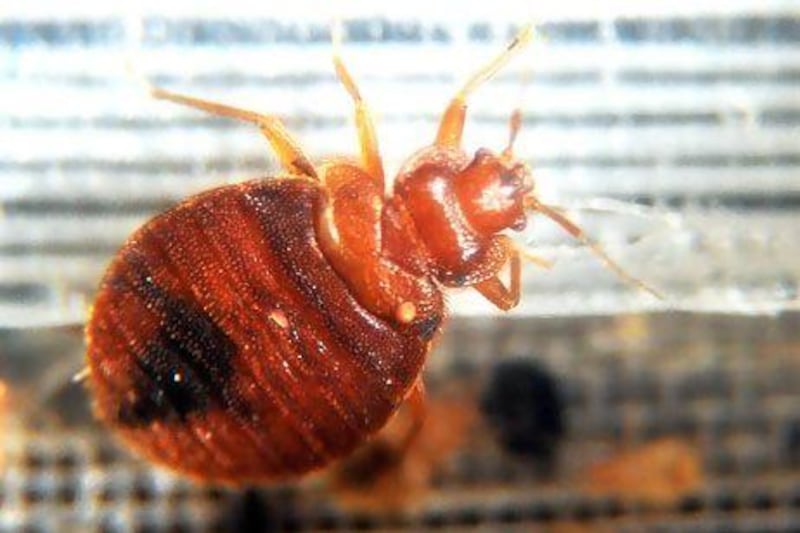For most people looking to avoid the sweltering summer temperatures home is a haven but, as the mercury rises, residents should be on the lookout for some unwelcome houseguests.
Pest control companies have said that calls for bed-bug problems rocket during the summer months.
Boits Laborte, a technical manager at Rentokil pest control company in Abu Dhabi, said it is the increased chance of having a good meal - of human blood - as people stay in more, plus the fact air conditioning provides a good temperature for breeding, that has bed bugs multiplying.
"During the summer, there are a lot of bed bugs," he said.
"The optimum temperature of bed bugs is 18°C to 20°C, so it's pretty much the cool temperatures [that helps them thrive]."
From the middle of January until mid-April Rentokil averaged 10 to 12 calls per month in Abu Dhabi in relation to bed bugs but for June, July and August that number is expected to rise to between 20 and 24.
"Unless controlled, they will multiply fast because of the temperature and because most people don't want to go out, so they will be inside the room. They are providing them with the right temperature and food," Mr Laborte said.
"If they get a blood meal once in a week, they lay five to eight eggs a day."
Signs of a bed bug problem include bites, blood stains on the fabric of beds or sofas and bug excrement, which consists of dark spots that can be seen in hiding places such as cracks in the wooden structures of beds, sofas and chairs.
"They can easily hide in any material except glass. They can be in clothing, wood, fabric, sheets, pillowcases, curtains and even picture frames," Mr Laborte said.
The creatures spread by transferring from person to person on clothes, inside suitcases, or on any items they come into contact with.
To help prevent an infestation, Mr Laborte advises good hygiene, with bedding washed in hot water on a regular basis and the vacuuming of sofas and carpets.
Once a problem has occurred, Rentokil uses two methods to tackle them: spraying an insecticide and heat treatment.
"We will heat up the whole room to between 50°C and 60°C for one to two hours and we hold it at that temperature. At that temperature, everything dies," Mr Laborte said.
Shri, from Dubai, knows just how stressful a bed bug problem can be after realising he had one in January.
He said he noticed a rash on his hand and initially put it down to a mosquito. But, by chance, his wife spotted insects crawling up the bedroom wall one night and the couple realised they were bed bugs.
"It was hectic and frantic. We were taken aback and started searching everywhere on how to get rid of it. We just wanted to leave the house," he said.
The couple threw out their beds and got professionals in to tackle the bugs.
James Nicholson, the UAE general manager for Rentokil, said there is a significant bed bug problem in the UAE but that does not make it any different to other, comparable places.
"The UAE is on a par with other countries of similar temperatures, such as Singapore, Hong Kong and Doha," he said.
Glenmar Balete, an entomologist for Terminex Pest Control, which operates in Dubai and Abu Dhabi, said his company sees twice as many calls due to bed bugs in the summer than in the winter.
He thinks it is down to the higher summer temperatures but said there are many factors involved, such as housekeeping, sanitation and personal hygiene.
Calls come from labour camps, hotels, villas and apartments, he said. "They can appear anywhere because they can be transferred in so many ways."
Abdul Bari, a sales representative for Al Bab Insect Control in Abu Dhabi, said they also see an increase in calls due to bed bugs in the hotter months, from about four per week in the winter to 10 per week in the summer.
[ ecleland@thenational.ae ]






